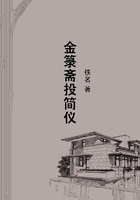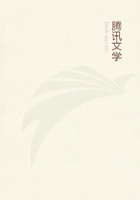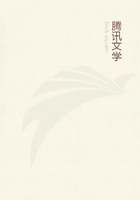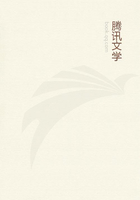The other side is that thought likewise applied itself to nature, and in this connection Isaac Newton is famous by reason of his mathematical discoveries and his work in physics. He was born in 1642at Cambridge, made a special study of mathematics, and became professor of the same at Cambridge; later on he was made president of the Royal Society in London, and he died in 1727.(11)Newton was indisputably the chief contributor to the popularity of the philosophy of Locke, or the English method of treating of Philosophy, and more especially did he promote its application to all the physical sciences. “Physics, beware of metaphysics,” was his maxim,(12) which signifies, Science, beware of thought; and all the physical sciences, even to the present day, have, following in his wake, faithfully observed this precept, inasmuch as they have not entered upon an investigation of their conceptions, or thought about thoughts. Physics can, however, effect nothing without thought; it has its categories and laws through thought alone, and without thought it does not effect any progress. Newton was mainly instrumental in introducing to physics the determinations respecting forces, which pertain to reflection; he raised science to the standpoint of reflection, and set the laws of forces in the place of the laws of phenomena. Regarding matters as he did, Newton derived his conclusions from his experiences; and in physics and the theory of colour-vision, he made bad observations and drew worse conclusions. He passed from experiences to general points of view, again made them fundamental, and from them constructed the individual; this is how his theories are constructed. The observation of things, the discovery of the law immanent therein, and the universal which is found within them, has become the real point of interest. In this way, Newton is so complete a barbarian as regards his conceptions that his case is like that of another of his countrymen who was surprised and rejoiced to learn that he had talked prose all his life, not having had any idea that he was so accomplished. This Newton, like all the Physicists, indeed, never learned; he did not know that he thought in, and had to deal with Notions, while he imagined he was dealing with physical facts: and he presented the extremest contrast to Boehme, who handled sensuous things as Notions, and, by sheer force of mind, obtained entire possession of their actuality and subjugated them. Instead of this Newton treated Notions like sensuous things, and dealt with them just as men deal with wood and stone. And this is even now the case. In the beginnings of physical science we read of the power of inertia, for instance, of the force of acceleration, of molecules, of centripetal and centrifugal force, as of facts which definitely exist; what are really the final results of reflection are represented as their first grounds. If we ask for the cause of there being no advance made in such sciences, we find that it is because men do not understand that they should apply themselves to Notions, but make up their minds to adopt these determinations without sense or understanding. Hence in Newton's Optics, for instance, there are conclusions derived from his experience which are so untrue and devoid of understanding, that while they are set forth as the finest example of how men can learn to know nature by means of experiments and conclusions derived from experiments, they may also serve as an example of how we should neither experiment nor draw conclusions, of how nothing at all can be learned. A miserable kind of experience like this itself contradicts itself through nature, for nature is more excellent than it appears in this wretched experience: both nature itself and experience, when carried a little further, contradict it. Hence, of all the splendid discoveries of Newton in optics, none now remain excepting one - the division of light into seven colours. This is partly because the conception of whole and part come into play, and partly from an obdurate closing of the eyes to the opposite side. From this empirical method in Philosophy, we shall now pass on to Leibnitz.
1. Brucker. Histor. critic. philos. T. IV. P. 2, pp. 731-736, 743-745.
2. Hug. Grot. De jure belli ac pacis, B. III. chap. xi. § 13-16 (Ed. Gronov. Lipsi?, 1758, 8vo), pp. 900-905; chap. iv. § 10, pp. 792, 793.
3. Buhle: Geschichte der neuern Philosophie, Vol. III. Sec. 1, pp. 223, 224, 227.
4. Hobbes. Epistola dedicatoria ante Elementor. philos. Sectionem primam (Thom? Hobbesii Opera philosophica, qu? latine scripsit omnia, Amstelod, 1668, 4to), pp. 1, 2.
5. Cf. Brucker. Histor. crit. philos. T. IV. P. II. p. 154.
6. Hobbes, De cive, chap. i. § 2, 3 (Oper. phil. etc. Amstel. 1668), pp. 3, 4.
7. Hobbes, De cive, chap. i. § 4-6, 12-14, pp. 4-8; Leviathan, chap. xiii. (Oper.), pp. 63-66.
8. Ibidem, chap. v. § 6-12, pp. 37-38; chap. vi. § 12-14, pp. 44-46.
9. Buhle: Geschichte der neuern Philosophie, Vol. IV. Sec. 2, pp. 519-523; Rixner: Handbuch der Geschichte der Philosophie, Vol. III. p. 29.
10. Rixner: Handbuch der Geschichte der Philosophie, Vol. III. p. 31; cf. Puttendorf: De jure natur? et gent. II. 2, § 5-7 (Francof. ad Moenum, 1706, 4), pp. 157-161; VII. 1, § 3-7, pp.
900-909.
11. Buhle: Geschichte der neuern Philosophie, Vol. IV. Sec. 1, pp. 107, 108.
12. Buhle: Geschichte der neuern Philosophie, Vol. IV. p. 115; cf. Newtoni Optices, P. III.
(Londini, 1706, 4) p. 314.
Section Two: Period of the Thinking Understanding Chapter I. - The Metaphysics of the Understanding C 1. LEIBNITZ.

